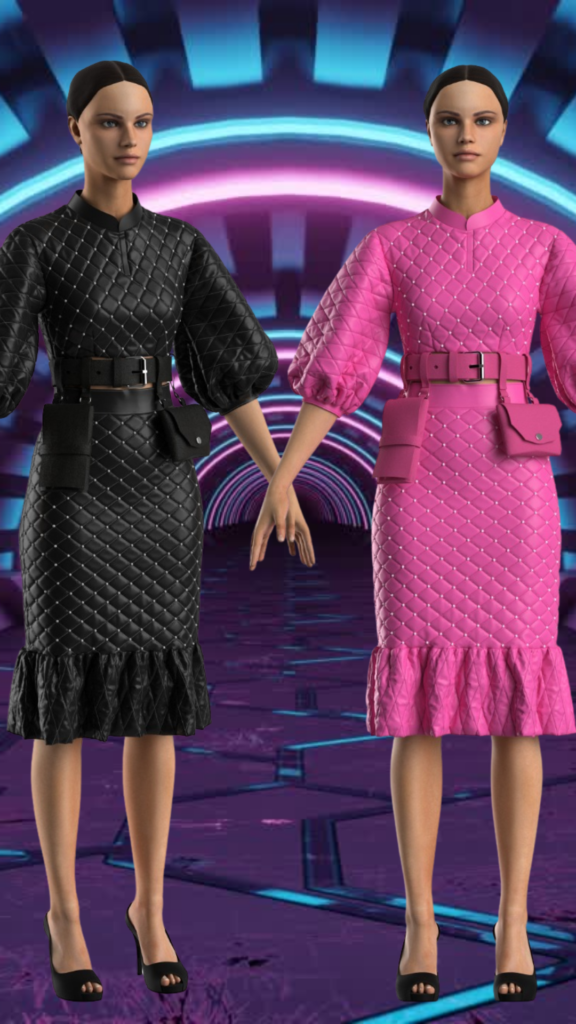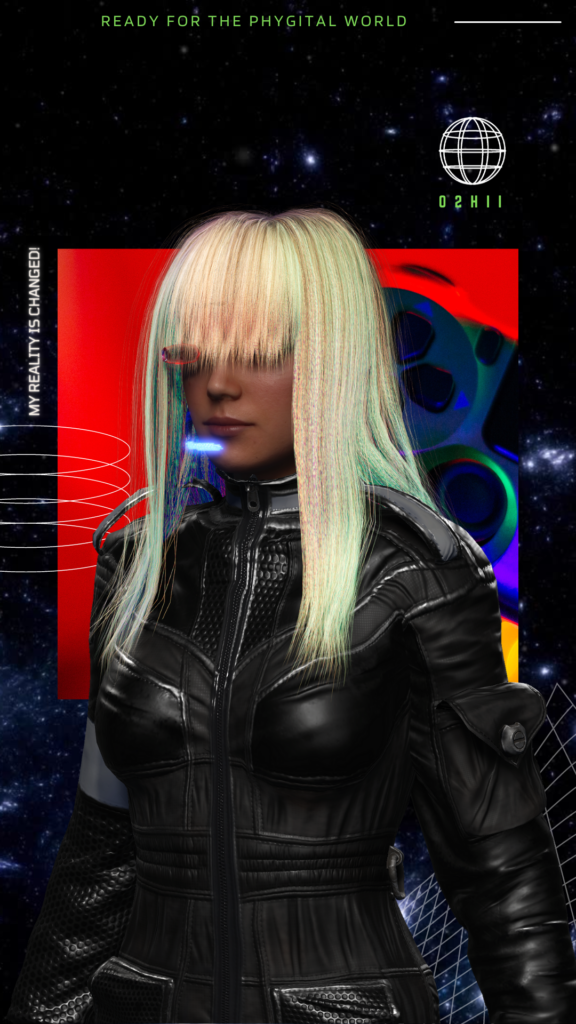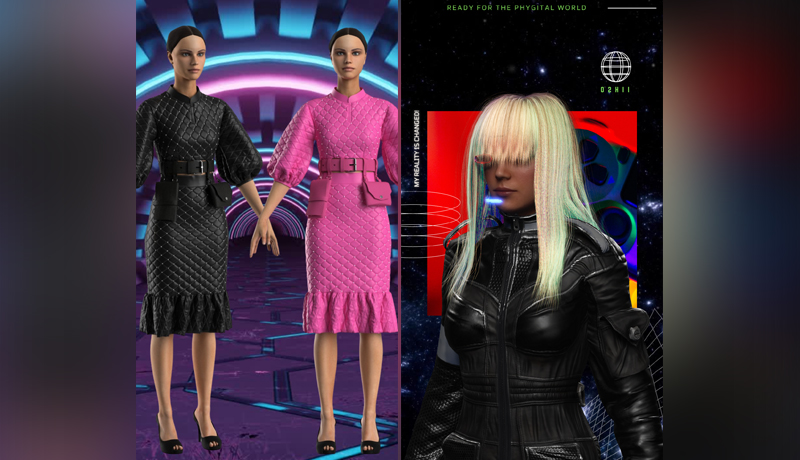If we stop and think about the sectors which have rapidly changed over time, fashion and tech are sure to come to your mind. Rightly so, these are among the most dynamic of all fields, with one defined by changing trends and tastes of the public, whereas the other simply keeps on growing with the latest advancements. Phygital Fashion is something that brings us a bit of both, while also defining the expected future of the fashion industry.
The term “Phygital” might sound confusing, especially to those who haven’t heard of it much. It is actually not as complex, as it simply defines a mix of physical and digital approaches. This concept however might not be identified as such but has been present for a long time, as we can see digital services helping us get through the physical work in a more convenient manner. Industries like banking, international trade, real estate, shopping, automotive, and certainly, fashion.

Fashion, Web 3.0 and the Metaverse
The advent of blockchain technology has brought about drastic changes in almost every industry. After getting stormed by the rapid rise of cryptocurrencies, the NFTs then became the talk of the town with top companies, brands and celebrities diving into it, further enhancing its impact. The fashion world was not to be left behind, as it embraced the new trends, bringing us a new dynamic of the industry that was never seen before.
A further progression in digital fashion was seen with the conception of the Metaverse. As the virtual world allows you to pick your own avatars and appearances, this opened up yet another avenue for fashion designers and enthusiasts to test their imaginations. You can find the best outfits, gears and accessories that can be donned in the virtual world, creating an image which was never possible earlier.
This leads us to Phygital Fashion, as all the outfits and accessories you purchase in the virtual arena, are now also available physically, in the real world. There have been several fashion brands and designers working toward phygital fashion, where you can bring your imaginary self to the real world. Among these, some are worth mentioning for their futuristic method and approach to fashion.

RTFKT
One of the leaders in this domain, RTFKT offers unique collections of digital artifacts and sneakers. Acquired by Nike, the brand has the backing of manufacturing excellence, further enhanced by the use of augmented reality, game engines, blockchain technology and NFT. It is a prime example of what phygital fashion represents, offering high-end fashion products both in the virtual and real world.
RTFKT was founded in 2019 by Benoit Pagotto, Chris Le and Steven Vasilev. The firm grew quickly due to its proficiency in using the latest tech combined with creative aptitude, leading to its acquisition by Nike in 2021.
DRESSX
DRESSX is a multi-vendor store offering digital fashion collections from top brands and designers. Taking a cue from conventional e-commerce stores for physical fashion, DRESSX has brought the same level of convenience and variety to the virtual world. The theory behind the brand is that the world has way more clothing than is already needed, so people can cut down on physical purchases and go for fashion in the digital world instead. Headquartered in Los Angeles, the platform was formed in 2019 and has since been offering a wide variety of virtual fashion outfits and collectibles to its audiences. Leading names behind its formation and success are Daria Shapalova and Natalia Modenova, two highly respected professionals in the world of digital fashion.
The Fabricant
The Fabricant is a purely digital fashion house founded in 2018. The garments and accessories are offered as NFTs, which can be created in a customized way and can be either worn or traded. The most amazing thing about Fabricant Studio is that it allows you to directly customize the outfits, with options for colors, fabrics and much more. It brings out the designer within you and allows you to create a digital persona as per your imagination. The co-founders of the project include Kerry Murphy, Adriana Pereira and Amber Slooten, who have brought this brand to where it is today.
Oshii Brownie
Another impressive name in the world of Digital Fashion, Oshii Brownie is known for its esthetic designs that focus on self-expression and cultural diversity. It is a purely hybrid, or as we now call it, a phygital fashion brand offering a wide range of products as NFTs and also in physical form. So those who like to replicate their digital identity in the actual world, this brand provides just that.
The brand’s success owes greatly to the keen sense of design of Ayesha M Ali and the Digital Prowess of Salman Sabir, who are the co-founders of this project. Oshii Brownie, since its formation in 2019, has rapidly grown into the industry’s most notable brand and has been covered by leading publications. If there were any doubts about phygital fashion brands making it big in the industry, Oshie Brownie has proved how it can be done.
Along with these three, several other brands hint toward the future of fashion. There is no denying that physical fashion is there to stay, yet the imaginative and limit-free nature of digital fashion will keep on attracting more fashion enthusiasts into its fold. Given that, we can expect much more from phygital fashion in terms of scale and competence.

